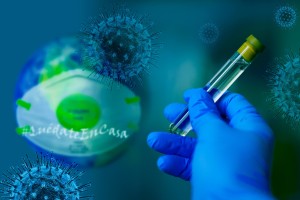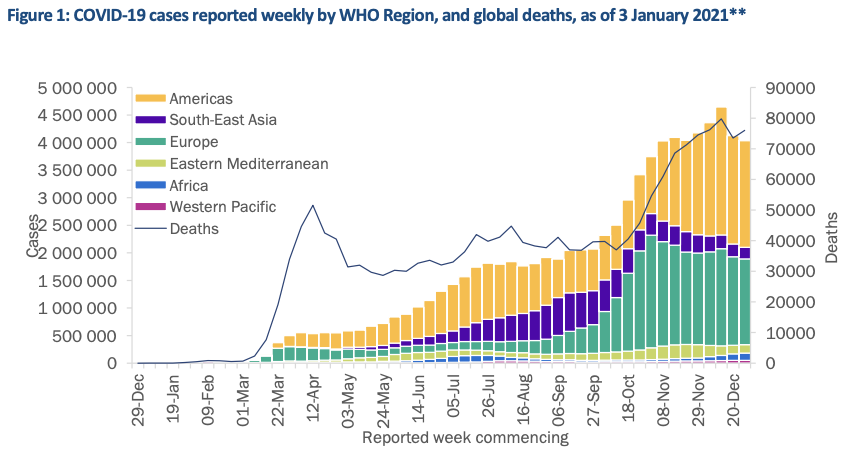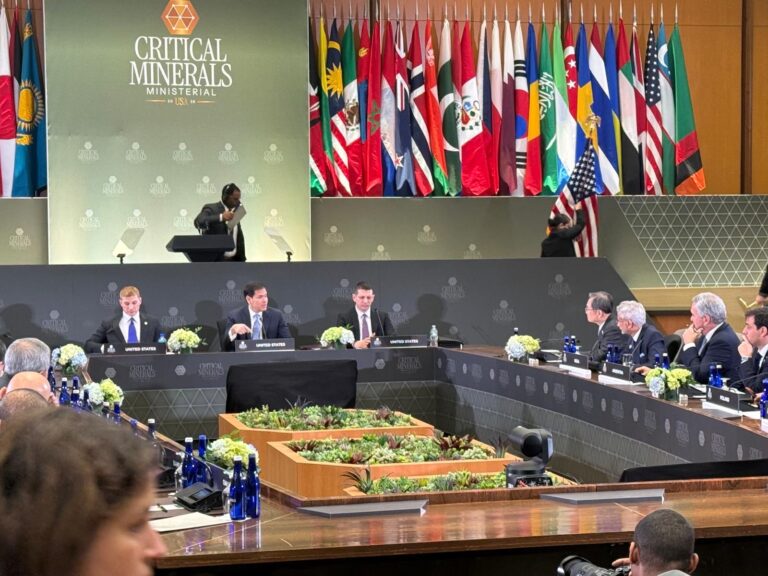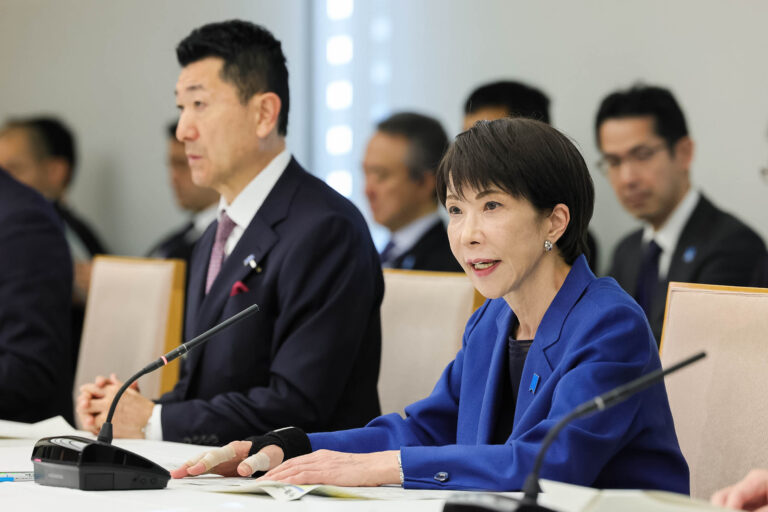
China yet to permit WHO team ’s visit to study COVID-19 virus origins
Geneva: As we welcome the New Year, and look eagerly towards COVID-19 vaccination campaigns worldwide, the current epidemiological situation with near record numbers of new cases and deaths, makes it imperative to continue to adhere to safety measures to prevent further transmission and loss of life.
At the press conference here last night, World Health Organisation (WHO) Director-General Dr. Tedros Adhanom Ghebreyesus, informed here last night that over the past 24 hours, members of the international scientific team on COVID-19 virus origins began traveling from their home countries to China. However, he said that “today we learned that Chinese officials have not yet finalised the necessary permissions for the team’s arrival in China”. He added: “We are eager to get the mission underway as soon as possible.”
“We have entered a new phase of the pandemic, where solidarity is needed like never before, he said while emphasising that “it’s important in any crisis to act fast and have no regrets”. He expressed his concern that caseloads were so high in several countries that “hospitals and intensive care units are filling up to dangerous levels”.
Recent reports of different variants of SARS-CoV-2 have raised concern about and interest in the impact of viral changes. As of January 5, 2021, the VOC-202012/01 variant initially detected in the United Kingdom has been detected in a small number of cases in 40 other countries/territories/areas in five of the six WHO regions, and the 501Y.V2 variant initially detected in South African in six other countries/territories/areas.
“New variants, which appear to be more transmissible, are exacerbating the situation,” Dr. Ghebreyesus said.

In the last months, two different variants of SARS-CoV-2 have been reported to WHO as unusual public health events from the United Kingdom of Great Britain and Northern Ireland, referred to as VOC 202012/01, and the Republic of South Africa, named 501Y.V2. Preliminary epidemiologic, modelling, phylogenetic and clinical findings suggest that SARS-CoV-2 VOC 202012/01 has increased transmissibility, and the preliminary data received by WHO from national authorities, as of 3 January 2021, also indicates that there is no change in disease severity (as measured by length of hospitalisation and 28-day case fatality), or occurrence of reinfection between variant cases compared to other SARS-CoV-2 viruses circulating in the United Kingdom.
To date, outside of the United Kingdom, 40 countries across five of the six WHO regions have reported cases of VOC 202012/01, while outside of South Africa six countries, in two of the six WHO regions have reported cases of 501Y.V2. The authorities in both countries are conducting further epidemiological and virological investigations to further assess the transmissibility, severity, risk of reinfection and antibody response to these new variants, as well as potential impact on countermeasures, including diagnostics, therapeutics and vaccines.
For the third week in a row over 4 million new COVID-19 cases were reported globally, and new deaths increased by 3% to 76000. This brings the cumulative numbers to over 83 million reported cases and over 1.8 million deaths globally since the start of the pandemic, according to the World Health Organisation’s latest COVID-19 Epidemiological Update, released on January 5, 2021.
In the past week, the five countries reporting the highest number of cases were the United States of America (with 1 325 424 cases, just under a third of global cases and unchanged from last week), the United Kingdom of Great Britain and Northern Ireland (343 784 cases, continuing last week’s rapid increase with a 36% increase), Brazil (252 018 cases, an 11% decrease), the Russian Federation (186 539 cases, a 7% decrease) and India (136 115 cases, a 13% decrease).
The Region of the Americas accounted for 47% of all new cases and 42% of all new deaths globally in the past week. New cases and deaths remained high in the European Region, which accounted for 38% and 43% respectively, showing a slight decrease in new cases and a slight increase in new deaths. New cases and deaths continue to decline in the South-East Asia and Eastern Mediterranean regions. In the African Region, while both new cases and deaths remain low in absolute numbers, for the fourth week in a row, the Region is reporting the largest percentage increase globally in weekly reported case numbers and this week there was a further 13% increase in new cases and 28% increase in new deaths. In the Western Pacific Region, new cases remained comparable to the previous week, but new deaths rose by 10%.

“Informing about the vaccines, Dr. Ghebreyesus said more than 30 countries had started vaccinating their high-risk populations with various COVID-19 vaccines. The hundred-hundred initiative driven by WHO, UNICEF and the World Bank was supporting over 100 countries to conduct rapid readiness assessments and develop country-specific plans for vaccines and other COVID-19 tools and so far, more than 90 countries have already completed the assessments.
“Our teams are working around the clock to ensure that governments and health systems are ready for global vaccine rollout but we need consistent, predictable, affordable supply of safe and effective vaccines. People must come first over short-term profits. It’s in countries self-interest to shun vaccine nationalism,” Dr. Ghebreyesus said.
Last week, WHO had issued its first Emergency Use Listing for a COVID-19 vaccine – the Pfizer-BioNTech vaccine, and the WHO D-G said it was also encouraging to see the Astra-Zeneca vaccine rollout begin in the first country.
COVAX has been backed by 190 countries and economies and I want to see all manufacturers channel supply to COVAX quickly so that rollouts can begin and those at high-risk are protected around the world.
“Vaccinating health workers and those at high risk of serious disease is the fastest way to stabilise health systems, ensure all essential health services are up and running and that a truly global economic recovery can take place. I urge all governments to work together and live up to their commitments to equitable distribution globally and all pharmaceutical groups to boost supply as quickly as possible and to fully participate in COVAX,” he appealed.
– global bihari bureau






Very informative and also alarming that China is not cooperating with WHO team in their investigation Hope they will provide necessary support to WHO very soon.